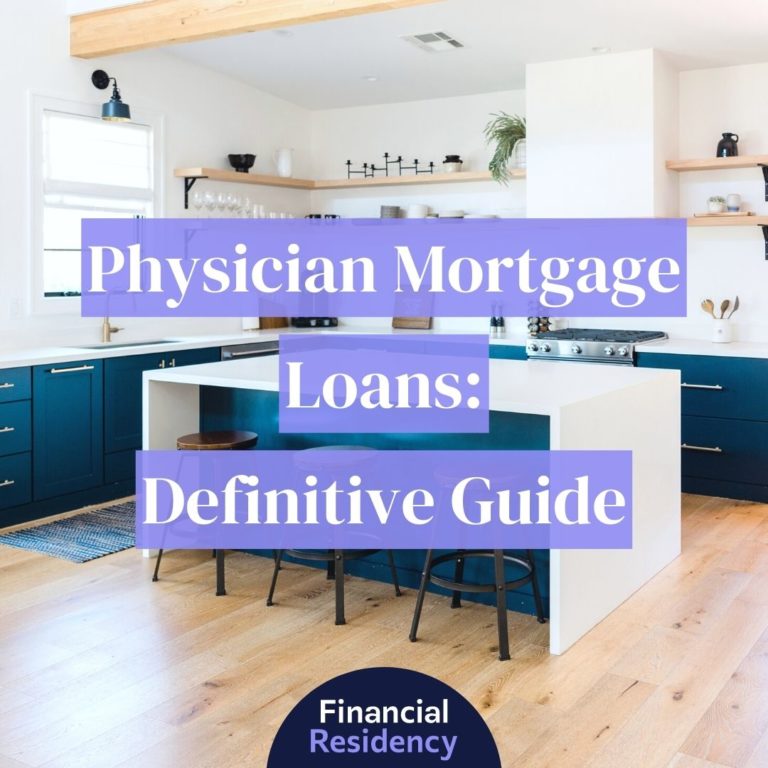The following article was written by Deacon Hayes, Founder of Well Kept Wallet. Although Deacon supports Financial Residency, we have not received any monetary investment to post. The views and opinions herein are that of the author.
How to Pay Off Medical Debt Fast
As if the reasons you got into medical debt were not stressful enough, you then have to find a way to pay for the healthcare that potentially saved your life.
The good news is that when it comes to medical debt, you have more options than you would with other kinds of debt. You should consider all your options before you start paying down your medical debt.
The first reaction to medical debt may be to pay it off with a credit card. However, that is likely not the best solution to the problem.
If you pay your medical debt with a personal credit card, then you run the risk of running into higher interest payments down the line. These interest payments could lead to you paying hundreds or thousands of dollars more in interest plus the initial medical debt.
You should also try to avoid personal loans that could lead to the same problems of higher interest payments.
Before you start looking into your options, remember that you want to get out of medical debt, but you do not want to get into credit card debt. Jumping from the frying pan and into the fire is never a good idea!
How can you get started?
Take A Closer Look at Your Medical Bills
The bill you got in the mail probably seems hefty. Medical actions can be expensive, but sometimes your bill includes an expensive mistake.
In fact, most bills contain at least one error. It is crucial that you look at your medical bill to ensure that you are paying what you actually owe.
Go through your medical bill in detail to ensure that you haven’t been mis-charged for anything. Make sure to look closely for unnecessary procedures, duplicate charges, or unused supplies.
As you look through the bill, you pay attention to the codes. If you see something that looks higher than average, call the billing department of your medical facility to check what the code means. If an item was miscoded, then you could be paying extra for a service that you did not receive.
Finally, check with your insurance company’s policy to ensure that your plan was honored correctly. Confirm what your plan covers and make sure that it was actually covered.
If you find an inconsistency, then call your insurance company. They should be able to either correct the bill or explain why certain charges were left on.
Negotiate the Costs
After you have confirmed that your bill is actually what you owe, it is time to negotiate.
If your bills are in collection, then you will have some leverage. Collectors usually buy medical debt for just pennies on the dollar, so they may be more willing to work with you on the total price.
You also have the option to negotiate directly with your provider. The hospital may be willing to work with you because they do not want to deal with the hassle of a third-party collection agency.
As you negotiate, remember to aim for a situation that will work for everyone involved. Never be afraid to ask for a lower lump sum option. You can even challenge billing that seems unfair.
You might feel that negotiating is over your head, but it may be worth the effort.
Hire A Medical Bill Advocate
If you do not feel up to negotiating by yourself consider working with a medical bill advocate. An advocate will likely charge several hundred dollars to work with you, but it may be worth that cost if your medical debt is out of control.
An advocate will be comfortable combing through your bills and understand the typical mistakes made by billing agencies that could work in your favor.
Medical Billing Advocates of America can connect you with an appropriate advocate.
Before you decide to hire an advocate, make sure that their savings will outweigh their cost. It can be expensive to hire a good advocate, you will need to decide if it is worth the cost in your situation.
Find A Payment Plan
Once you have ensured that the bill is correct and that you cannot negotiate the debt down any further. It is time to investigate a payment plan option.
Most providers have a payment pay option for medical expenses that you cannot afford to pay all at one time. Typically, the amount you owe is divided over into equal payments for several months.
Sometimes providers offer an income drive hardship plan. If you qualify for this kind of plan, then it would calculate your payments based on your income.
As your provider for more details on the payment plans that they offer. You may be surprised by the affordable options available to you.
Before you sign up for a payment plan, check into any fees associated with the plan. Potentially, the fees could make this option not affordable. It is good to check before you get started with the payments.
Get A Medical Credit Card
Medical credit cards allow you to pay for a medical procedure all at once but have an interest free period as you pay back the costs. Usually, a medical credit card will be usable for a specific medical procedure and it is likely you can find information about these cards in your provider’s office.
Generally, these credit cards have an interest free period of 6 to 12 months. However, at the end of this period, you will be hit with a large deferred interest rate. This deferred interest rate could cost you hundreds of dollars.
Before you sign up for a medical credit card, make sure that you can pay back the cost of the procedure before the interest-free period passes.
Last Resorts
If you have tried everything already outline, then it may be time to try less ideal tactics for paying off your medical debt. A few of your options include:
- Personal credit cards. You will likely have to pay back your debt at a higher interest rate if you go this route.
- Find a personal loan. Only do try this if you are down to your very last options.
- Look for a local charity. It is entirely possible that a charity connected to your provider will be able to help pay back your debt. Only use this option if you really have nowhere else to turn.
Having medical debt isn’t the end of the world. In fact, you may have more options for how to pay off medical debt than lots of other types of debt.





